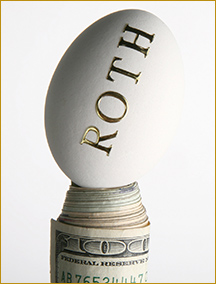When Converting to a Roth Makes Sense
Virtually anyone with a qualified retirement savings account can convert funds into a Roth IRA. A Roth is different from other retirement accounts in that contributions come from after-tax dollars, while earnings are tax-free. The question for taxpayers with funds in tax-deferred Traditional IRAs, SEP-IRAs, 401(k)s, and 403(b)s is whether converting them into a Roth is worth it.
Roth Basics
Major benefits of a Roth IRA:
– Earnings are free from federal tax. This can be of tremendous benefit if you are in a high tax bracket during retirement.
– Unlike Traditional IRAs, you can keep contributing to a Roth after age 70½.
– Unlike Traditional IRAs, there are no minimum required distribution rules.
Downsides of a Roth IRA:
– You should have enough money outside of your retirement account to pay the tax on the conversion.
– A Roth makes the most sense if you think you will face higher tax rates when you retire.
– A Roth conversion will increase your reported annual income by the amount converted during the year. If you aren’t careful, this could disqualify you for important tax benefits, such as dependent child and college tuition tax credits.
– A Roth needs time to build tax-free earnings. The more time you have before retirement, the more a Roth makes sense.
It is important to understand your options, so remember to ask for assistance prior to making a Roth conversion.
